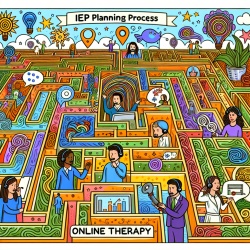Introduction
In the ever-evolving landscape of healthcare, pharmacogenetic (PGx) testing emerges as a pivotal innovation, promising personalized treatment plans tailored to individual genetic profiles. The recent study "Moving towards the implementation of pharmacogenetic testing in Quebec" sheds light on the potential of PGx testing to revolutionize healthcare in Quebec, Canada. This blog explores how practitioners can leverage these insights to enhance their clinical practice and improve patient outcomes.
The Promise of Pharmacogenetic Testing
Pharmacogenetic testing offers a tailored approach to medication prescriptions, minimizing adverse drug reactions (ADRs) and optimizing therapeutic efficacy. Research indicates that a significant portion of the population carries actionable genetic variants that can inform drug efficacy and safety (Van Driest et al., 2014). The integration of PGx testing into clinical practice can significantly reduce healthcare costs and improve patient care.
Overcoming Implementation Barriers
Despite its potential, the widespread adoption of PGx testing in Quebec faces several challenges:
- Cost: The perceived high cost of PGx testing is a major barrier. However, studies show that PGx-guided treatments can be cost-effective, reducing medication and hospitalization costs (Winner et al., 2015).
- Lack of Guidelines: Many healthcare providers report a lack of clear clinical guidelines. Organizations like the Clinical Pharmacogenetics Implementation Consortium (CPIC) offer accessible guidelines to bridge this gap.
- Educational Resources: Adequate training is essential for the successful implementation of PGx testing. Online courses and interprofessional education (IPE) workshops can equip practitioners with the necessary skills.
Implementing PGx Testing in Quebec
The study suggests a phased approach to implementing PGx testing in Quebec:
Pre-Implementation Phase
- Form multidisciplinary committees to oversee PGx implementation.
- Develop educational resources and training programs for healthcare providers.
- Leverage existing platforms like PREVALIS for data integration and management.
Clinical Implementation Phase
- Begin with hospital-affiliated settings and gradually expand to primary care.
- Integrate PGx data into electronic medical records (EMRs) for real-time clinical decision support.
- Ensure patient consent and ethical considerations are addressed.
Conclusion
Pharmacogenetic testing holds the potential to transform healthcare in Quebec by personalizing treatment plans and improving patient outcomes. By addressing the barriers to implementation and leveraging existing resources, Quebec can lead the way in integrating PGx testing into routine clinical practice. For practitioners, staying informed and engaged with ongoing research and implementation efforts is crucial to harnessing the full potential of this promising field.
To read the original research paper, please follow this link: Moving towards the implementation of pharmacogenetic testing in Quebec.










